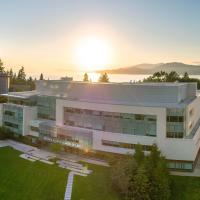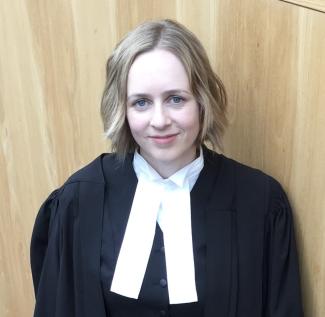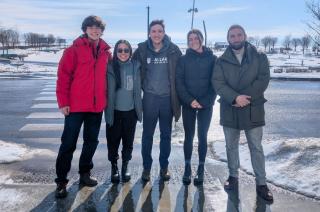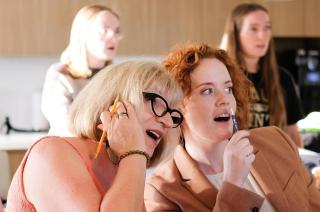Habeas Corpus and Prisoners' Rights: Meet LLM Grad Ellen Bolger

Allard Law
Mar 1, 2022

This fall, Ellen Bolger completed her Master of Laws degree at the Allard School of Law. Her thesis, Habeas Corpus after Khela: Dynamics Attenuating Prisoners’ Rights, was awarded the 2021 Dean of Law LLM Thesis Prize.
Prior to pursuing her master’s degree, Ellen articled in criminal defence and human rights and was called to the Yukon and BC bars in 2019. She is an associate lawyer at Dale Melville Law.
In this interview, Ellen shares some insight into her time at Allard Law and tips for writing a thesis.
What motivated you to pursue graduate studies at Allard Law?
In law school, I tended to enjoy classes involving extended research and writing, and I wanted to develop this interest further. I was interested in prison law issues and Allard Law has an excellent administrative and prison law faculty, so it seemed like a great option for the research I wanted to do.
Can you share a bit about your master’s research project? In what ways do you hope your research will make an impact? What are the possible real-world applications?
My research project looked at Canadian habeas corpus decisions from 2014 to 2020. Habeas corpus provides a means for prisoners to challenge the legality of their detention. This is an important mechanism for prisoners, as they’re particularly vulnerable to arbitrary uses of power by prison administrators.
I argue that habeas corpus reviews of decision-making in prisons need to be far more robust. For example, my thesis highlights the fact that reviewing judges have deferred to wardens to an excessive degree, with a number of judges stating that they did not want to “micromanage” a prison. I’m hopeful that my research could make an impact by bringing attention to ongoing problems with the rule of law extending into prisons.
A real-world application of my research is that I propose a more robust reasonableness review during habeas corpus. This approach can be justified by a recent Supreme Court of Canada decision in Vavilov. This case arguably confers an increased responsibility on prison decision-makers to ensure that they do not restrict a prisoner’s liberty without proper justification.
What do you think made your LLM thesis outstanding and what tips do you have for other students in the thesis-writing stage?
I think a strength of my LLM thesis was that I picked a topic I was passionate about and had some personal connection to. That connection to the topic gave me extra patience while wading through the immense number of cases and secondary sources I examined. My supervising professors, Debra Parkes and Mary Liston, gave me invaluable feedback which helped to create something much better than anything I could have done on my own. I would suggest that LLM students try and take advantage of the expertise of their supervising professors as much as they can and be open to taking your thesis in a different direction than initially planned.
What was your most challenging experience pursuing a graduate degree at Allard Law, and what strategies did you adopt to help you through it?
An unexpected challenge that was probably common to everyone was the COVID-19 pandemic. This meant that library access was restricted and that I could only work from my apartment. It was difficult to develop boundaries between work and home. I got through that challenge by intentionally taking breaks and only working on my thesis during set hours of the day.
Conversely, what would you say has been your most memorable experience at Allard Law and UBC?
My most memorable experience at Allard Law and UBC was probably my time completing the Indigenous Cultural Competency Certificate facilitated by Professor Patricia Barkaskas and Lee Schmidt, Director of Indigenous Legal Studies at Allard Law. The certificate provides an opportunity for Allard Law students, faculty and staff to learn about Indigenous perspectives on law and Indigenous legal systems while developing skills-based cultural competencies. I especially enjoyed our day trip to Musqueam and the many brilliant guest speakers.
Can you share a bit about your post-study plans? In what ways do you think your LLM degree will advance your career goals?
I'm currently practicing criminal defence law in the Lower Mainland and the Yukon. The research and writing skills I developed during my LLM have already been valuable. In terms of other plans, the methodology and theoretical base of knowledge I gained from the LLM makes me feel confident about developing research projects in the future.
Do you have any advice for incoming graduate students in terms of balancing the demands of graduate school?
I would recommend applying for funding as soon as possible. Having financial support made it possible for me to completely focus on my thesis. I had a couple of short-term work contracts during my graduate studies, but nothing that took up a significant amount of time. It also helped to have a partner who was supportive of my work.
- Allard School of Law
- Graduate Programs


